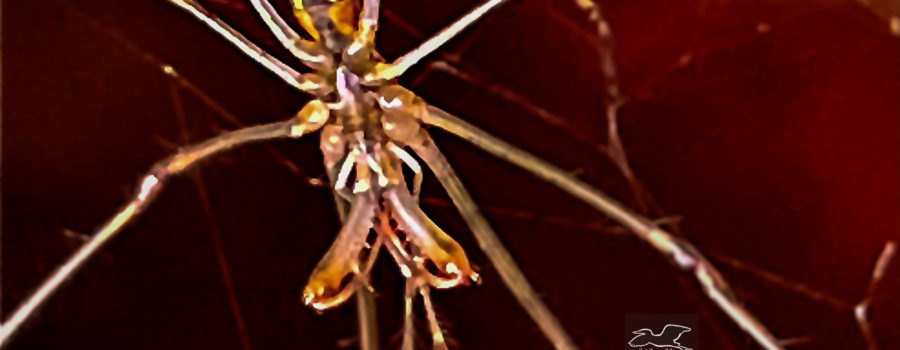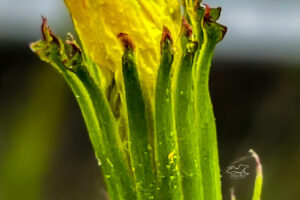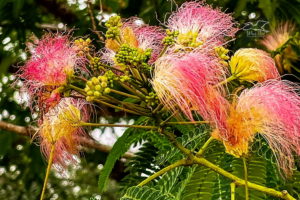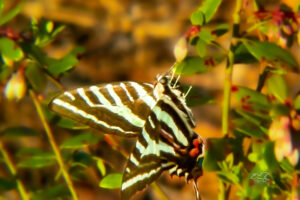The Stretch Spiders Have an Interesting Lifestyle

Oftentimes out by my ponds, I find these long, thin spiders hanging in their horizontal webs above the water. Sometimes the webs are attached to the walls of the pond and others they are spun around the surrounding vegetation. Sometimes I even find the spiders running along the surface of the water just like the fishing spiders can. They are small spiders, and they tend to be kind of wary, so I have not had much luck getting decent photos of them in the past. Lately we’ve had quite a bit of rain, and the pond water is all dark brown. It’s not dirty water, it’s coloration from the tannins in the oak trees that the rain comes through. When we get a lot of rain, the tannins can even turn the rivers brown. Anyhow, the brown color added just the contrast that I needed to finally capture some images of these spiders. So what are they? They are stretch spiders (Tetragnatha spp.), more commonly known as long-jawed orb weavers. There are 320 total species and they can be found throughout most of the world. Most of those species look very similar, and need microscopic examination for species identification.

Stretch spiders are so named because of their habit of stretching themselves out as a defense mechanism. When they do this, they can easily hide along a blade of grass or the stem of a plant. They also often rest in that position while in their webs where they closely resemble a small twig. The species name, tetragnatha, means four jawed, and refers to the exceptionally elongated chelicerae or jaws of these spiders, especially the males. Along with their palps, it makes them look like they have four jaws.

Stretch spiders are in the Tetragnathidae family, which they share with the orchard orb weavers. Like the true orb weavers in the family Araneidae, these guys build a round web, but their webs aren’t as intricate with as many spokes. They prey on small flying insects who start life as nymphs in the water. As the insects emerge from the water in their flighted, adult forms, they are captured in the horizontal webs. Many of those insects are ones that we consider pests such as mosquitos and midges, so if you happen to notice one of these guys in your garden or near your pond, just smile and appreciate the low cost pest control.





Recent Comments